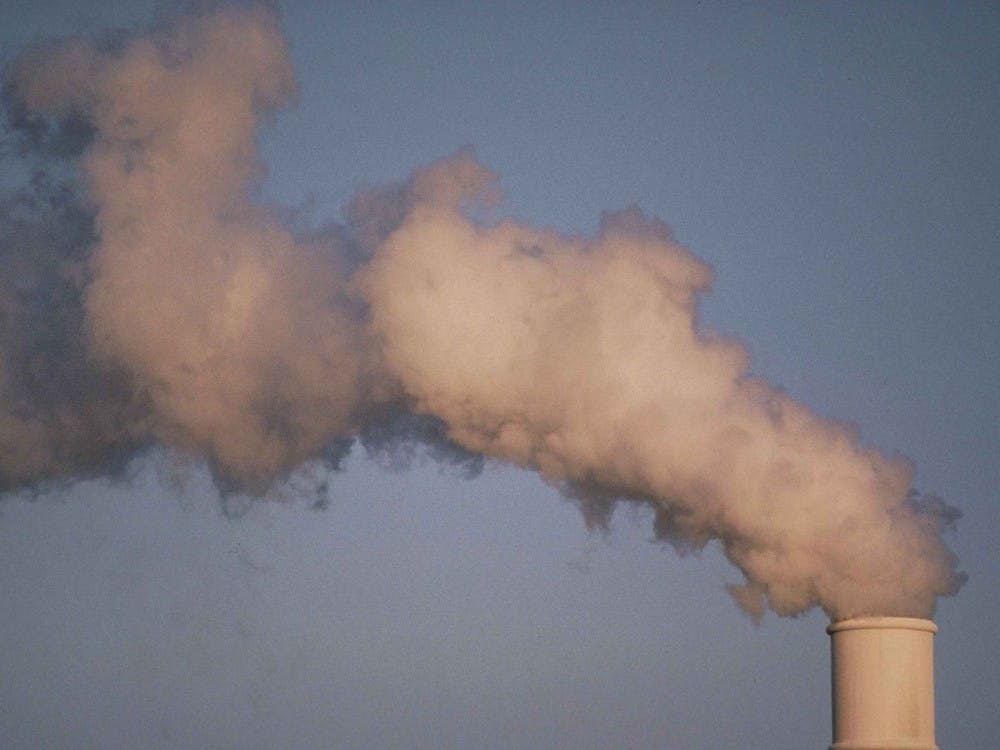A Duke professor recently cast doubt on the argument that transitioning to clean energy will lead to a sharp increase in global warming.
When climate representatives in the United Nations met to approve a new Intergovernmental Panel on Climate Change report, some representatives insisted that a transition to clean energy would cause air pollution to drop, resulting in a short-term increase in global temperature. Drew Shindell, Nicholas professor of earth science at Duke, was part of a team that demonstrated that these fears are unfounded.
He and Christopher Smith, a research fellow with the School of Earth and Environment at the University of Leeds, analyzed 42 scenarios representing rapid worldwide transitions from fossil fuels to clean energy. The pair found that steady reduction of fossil fuel emissions would likely reduce air pollution, prevent premature deaths and decrease warming rates within two decades.
“Phasing out fossil fuels is still the best way of meeting stringent temperature targets from the Paris Agreement,” Smith said. “What we’ve shown is that you don’t have negative climate impact if you reduce air pollution by phasing out fossil fuels. It’s a win-win for air quality, health, and the climate.”
Smith’s research contradicts other studies that predicted that, because burning fossil fuels releases pollutants that cool the atmosphere—like soot, carbon and sulfate aerosols—changing to clean energy could increase global temperatures.
However, Smith noted the temperature would continue to warm in the short term given the quantity of greenhouse gases that humans have already emitted.
“If we stopped emitting everything today, hypothetically, it answers an interesting and important question: how much climate change have we already locked in?” he said. “You’ll find that the air will clean itself up in a matter of days, or a couple of weeks. On the other hand, the carbon dioxide sticks around for a long time.”
Shindell and Smith looked for simple climate models to help them evaluate the impact of transitioning to green energy. The 42 emissions scenarios they chose considered how the global population, technology and economy would develop over the next century in an attempt to produce plausible models of a complete transition to renewable energy.
The researchers ran each model 1,000 times, with each one producing a final temperature prediction for each trial. The only changing variable was the predicted temperature increase caused by a given amount of carbon dioxide, as the researchers held the value of emissions over time constant.
Out of the 42 scenarios, 41 assumed that a technological fix would occur over the course of the transition. Almost every scenario made use of negative emissions technologies, which burn bioenergy to capture carbon dioxide in the air.
The models are ambitious given the current political climate, Shindell said, but they are a good representation of the various steps of the transition and how each would impact the environment.
In addition to the environmental benefits, healthier air could prevent millions of premature deaths.
“Even if you don’t care about climate change, this transition to clean energy is enormously beneficial. It’s a great thing to do for the sake of public health and the conservation of resources,” he said.
Shindell explained that the response to the study has been positive.
“People are excited that you don’t have to choose between clean air and mitigating climate change,” he said.
Moving forward, Shindell plans to broaden his research beyond climate and health. He wants to focus on quantifying the economic benefits of climate protection, such as the addition of “green” jobs and increased quality of life.
Most of all, he hopes that his research shows the public that a gradual transition to clean energy has many benefits, at almost no cost to the environment.
Get The Chronicle straight to your inbox
Sign up for our weekly newsletter. Cancel at any time.

